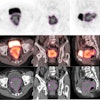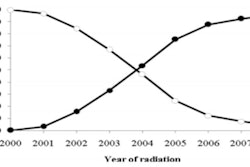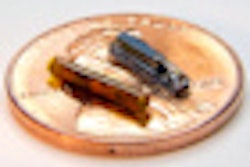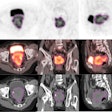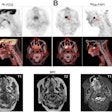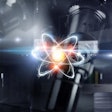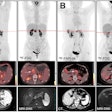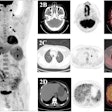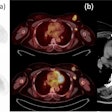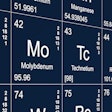Early outcomes of men treated with proton therapy for prostate cancer suggest that it is a safe and effective treatment, according to two studies published in the January 1 issue of the International Journal of Radiation Oncology, Biology, Physics.
In an outcomes study of more than 400 patients, radiation oncologists from the University of Florida Proton Therapy Institute in Jacksonville reported that 211 low-, intermediate-, and high-risk patients were enrolled in three prospective trials and followed for a median of two years. The patients tolerated proton therapy treatments well, experiencing very few toxicities (Int J Radiat Oncol Biol Phys, Vol. 82:1, pp. 213-221 and pp. e25-e31).
The men ranged in age from 41 to 88 years at the time they began treatment. They received a total radiation dose of 78 Gy to 82 Gy, depending upon the clinical trial. Thirty-eight percent of the total received pretreatment genitourinary symptom management, and 42% required post-treatment interventions.
Principal investigator Dr. Nancy Mendenhall and colleagues reported that only one intermediate-risk patient (out of 82) and two high-risk patients (out of 40) experienced a recurrence, while 10% of the patients had grade 2 or greater genitourinary toxicities during the first two years after treatment. The majority of patients who experienced toxicities had other comorbidities.
Overall, there was one grade 3 gastrointestinal toxicity and four grade 3 genitourinary toxicities, for a total incidence of less than 0.5% and 1.9%, respectively.
Positive outcomes were also reported in the second study, a case-matched analysis comparing high-dose external-beam radiation therapy (EBRT) delivered by proton therapy to brachytherapy for localized low- and intermediate-risk prostate cancer.
In the study, 196 patients received 79.2 Gy of radiation delivered by a combination of protons and photons between 1996 and 1999 at either Loma Linda University Medical Center or Massachusetts General Hospital (MGH). A group of 177 patients received permanent prostate brachytherapy treatment at MGH. After exclusion criteria were applied, there were 141 matches of 282 patients for evaluation.
Principal investigator Dr. John Coen, a radiation oncologist at MGH, and colleagues followed patients for a median of 8.6 years for proton therapy and 7.4 years for brachytherapy.
For the proton therapy group, overall survival eight years after treatment was 93% and freedom from distant metastasis was 99%. For the brachytherapy group, the rates were 96% and 96%, respectively. These differences were not statistically significant.
This study did not include a quality-of-life analysis.



